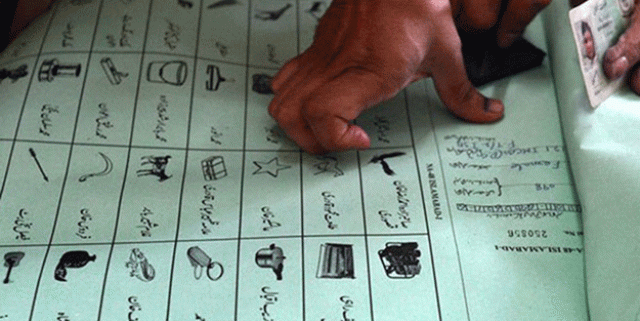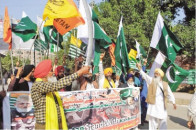Magnetic ink mystery: NADRA chief’s claim poses new questions
ECP never asked NADRA why it pushed for magnetic ink if it is useless

ECP never asked NADRA why it pushed for magnetic ink if it is useless. PHOTO: CNBC
In a statement presented before the chief justice-led inquiry commission probing alleged rigging in the general elections on May 21, NADRA Chairman Usman Mobin Yousaf claimed that using magnetic ink for thumb impressions of voters was a useless exercise.
Election Commission of Pakistan (ECP) spent Rs90 million from tax payers’ money to procure the ink on the recommendation of NADRA, which had earlier made tall claims that the ink would help in audit of every vote in case of any post-poll controversy.
According to an estimate, the ECP, instead of going for Rs50 per pad normal ink, spend around Rs200 for each pad of magnetic ink, as specified by NADRA.
“It was like forcing someone who just wanted to use a simple phone to make calls to buy an expansive Blackberry,” an official, who had been part of meetings between the ECP and NADRA, before the decision was made, told The Express Tribune. “NADRA told us that use of magnetic ink was the only option if we wanted vote audit after the polls,” he said.
The official, who wished not be named, agreed with portion of NADRA chairman’s statement where he said that his organisation disapproved various samples and approved one which was used for pads with magnetic ink.
He claimed that NADRA officials during those meetings promoted the use of magnetic ink like it was a magic ink. Later, when it failed to verify thump impression of majority of voters during audit process, they came up with statements questioning the quality of ink used in the elections.
The official claimed that according to his information, NADRA did not have equipment to read magnetic ink. His claim, however, could not be verified through NADRA.
The ECP has not only avoided any internal inquiry into the matter for the past two years but has also never sought any explanation from NADRA as to why it pushed for use of technology which was either not needed or not available with it.
Published in The Express Tribune, May 25th, 2015.



















COMMENTS
Comments are moderated and generally will be posted if they are on-topic and not abusive.
For more information, please see our Comments FAQ